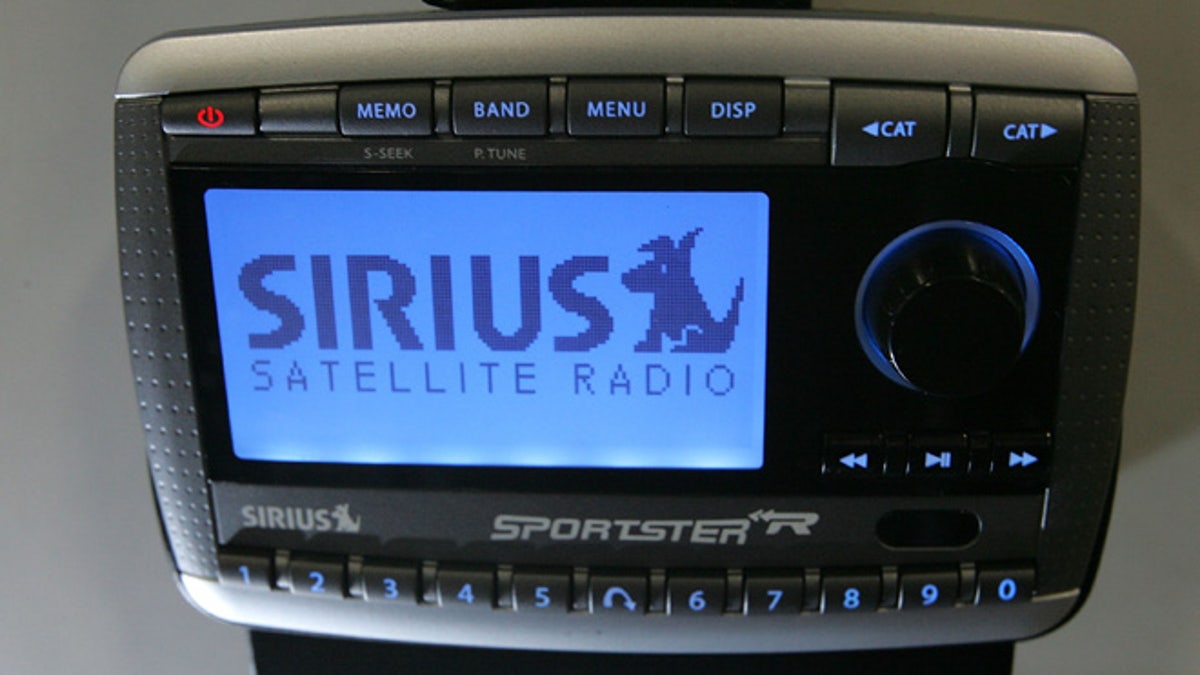
SAN FRANCISCO - DECEMBER 15: A Sirius satellite radio is displayed at a Best Buy store December 15, 2005 in San Francisco, California. Sirius is hoping that the January 2006 debut of Howard Stern will boost its sales and subscriptions as it tries to compete with XM radio, which has a 70% market share in satellite radio and continues to sign up more customers. (Photo by Justin Sullivan/Getty Images) (2005 Getty Images)
With little notice to listeners, labels or artists over the last few months, SiriusXM has eliminated eight out of 10 of its Latin music channels on their satellite platform.
And now some Latino civil rights groups are blasting the decision.
Of the two remaining Latin stations, with genres such as regional Mexican, reggaeton, Latin rock, salsa, Latin pop and Latin jazz, all will be online-only broadcasts with no availability in vehicles.
Several groups are asking for SiriusXM to restore the Latin channels to satellite broadcast and make them available in car radios.
According to the Wall Street Journal, a SiriusXM spokesperson says the satellite service still offers a variety of Spanish-language sports and news channels, a couple of tropical Latin music channel Caliente and En Vivo, and two that play music with Spanish lyrics.
- Stars Shine Bright At VMAs 2014
- ‘Hamilton’ blows the Grammy night away
- Gabriel García Márquez, 1927-2014, 87 Years Of Genius And Wonder
- Latin Grammy Awards 2013: The Best In Latino Music Take The Stage
- The best red carpet moments of the 2014 American Music Awards
- Ranchera music icon Vicente Fernandez bids farewell
- Best Pix From Latin America
- American Music Awards 2013: Naya Rivera, Zoe Saldaña And Other Latinas Shine On The Red Carpet
But labels are crying foul.
“Latinos are America’s biggest minority and fastest growing consumer base. We believe SiriusXM is losing a tremendous opportunity,” Josh Arón Norek, CEO Regalia Records and a member of Latin Label Coalition, told Fox News Latino.
In fact, regional Mexican music is the top-selling Latin music genre in the U.S., accounting for more than 50 percent of all Latin music sales, according to Nielsen SoundScan and the Recording Industry Association of America (RIAA).
“SiriusXM’s decision to drastically reduce the availability of satellite channels serving Latin audiences harms Latino listeners, artists and anyone hoping to hear diverse content on its platform,” Alex Nogales, president and CEO of the National Hispanic Media Coalition, said in a statement.
Patrick Reilly, a spokesperson for SiriusXM, told FNL via an email statement, "Despite reducing the number of Latin music channels on our satellite platform, we still deliver one of the most comprehensive offerings of Spanish language music, talk and sports programming available."
He added, "To date we have not seen demand from our current and potential subscribers to add more Spanish language programming to our satellite platform. We have found that our Latin base predominately has interest in our broad array of English-speaking programming complimented by our variety of Spanish-language programming."
At least on social media, however, many SiriusXM subscribers expressed outrage, with some threatening to cancel their accounts and boycott the service.
“They [SiriusXM] never gave Latin music a chance. Why should Latinos pay a premium to listen to music,” Norek says.
Many of SiriusXM’s Latin channels were never available on the older radios installed in most subscribers’ cars. They also lacked celebrity hosts, like other stations, “setting up the channels for underperformance,” the Latin Label Coalition, a group of independent Latin recording labels, said in a statement.
On Spotify AB, of the 30 million paying subscribers, the third-most popular playlist is an urban Latin mix called Baila Reggaeton.
Pandora Media Inc. reported a quarter of its 80 million monthly listeners are Hispanic. Last year Pandora added four stations to meet growing demand.
“Businesses ignore the ever-growing Latino market at their own peril,” said Luca Scalisi, president of Del Records, a Los Angeles-based Mexican-American label.
“Once you have lost them, it will be very hard to get them back,” Rocio Guerrero, Spotify’s global head of Latin programming, told the Wall Street Journal.
Norek, the CEO Regalia Records, hopes that SiriusXM reconsiders its decision.
“Our hope is they give Latino music the same respect and acknowledge that Latino consumers have a voice,” Norek told FNL. “We hope they look at these channels as a growth opportunity and not a loss.”








































